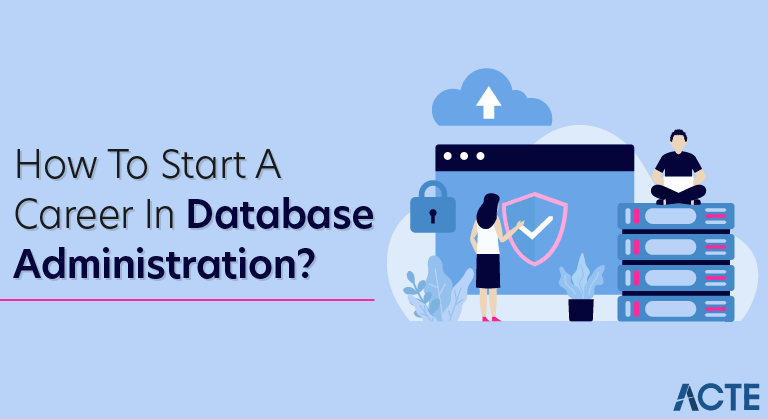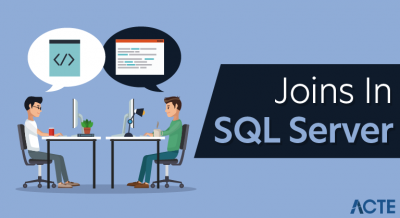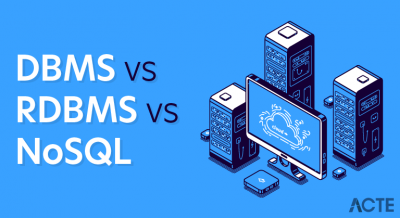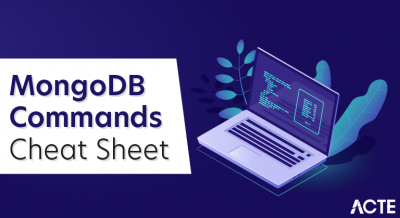
Starting with MySQL or Oracle is the initial step that most will suggest when you have your eyes set on becoming a database administrator. If you have any constraints that make attending regular classes difficult, you can learn SQL online. There are online courses for Oracle, too, that you can take at your desired pace and convenience. Since data storage is at the heart of all businesses, there’s a rapidly growing demand for database professionals in the allied domains of information assurance and security. Starting a career in database administration means becoming a database administrator (DBA) who handles a range of functions related to database storage, development, installation, testing, troubleshooting, retrieval, and security. Since corporations use massive data systems to store information, you will often work as a DBA with data communication and network system analysts who will design, run tests, and assess systems like WANs (wide area networks), LANs (local area networks), corporate intranets, and the Internet.
So, here’s how you can get the ball rolling for your career in the domain of database administration.
1. Earn a Bachelor’s Degree
Most database administrators hold a Bachelor’s degree, and you should have one, too — preferably in information systems, computer science, or the management of information systems (MIS), since employers these days prefer such applicants. Your chosen bachelor’s degree programs should ideally include courses that cover topics like database systems, web page applications, discrete structures, data mining and data structure, data communications, databases, and distributed systems, as well as database management systems. In addition to your degree, you should try doing an internship that introduces you to a range of tasks, which you may have to do as a database administrator. With this experience, you would have an edge over your competitors.
2. Take Online Courses
If you don’t have a college degree but still aspire to begin a career in database administration, you can search for online associate degree courses offered by several colleges in the field of computer science, information systems, and database programming. If you have no education or experience in computer science but are still interested in the database administration landscape, you can test the waters by taking up a certificate course in programming or computer office systems.
3. Learn SQL
This is a fundamental step in starting your career in database administration. Since SQL is the programming language that’s used for writing database queries, you will have to learn it. Be it enrolling in a classroom course or choosing a certificate in IT or programming that emphasizes SQL in particular when you decide to learn SQL online, you will have options galore. In fact, whatever you learn, you will have to learn SQL anyway. So, it pays to focus on this standard query language, which is supported by several relational databases.
When you take SQL courses, you will find that most courses are focused on MySQL, which is the most widely used database that runs on both Linux and Windows. PostgreSQL is another popular SQL database that tech companies use. You can even take SQL certification exams once you have some knowledge in the field. However, if you aim to earn difficult yet prestigious certifications like the MCSE Data Platform (for database professionals who create enterprise-level data solutions in cloud environments or on-premises) or MCSE Business Intelligence (for database professionals handling the development and deployment of business intelligence reports and solutions), you should be ready to put the effort and time that passing such certifications demands.
4. Learn Oracle
If Oracle is more your style, you can learn Oracle online or otherwise in a way that would teach and test your database knowledge in a wide variety of subject areas. You can take up Oracle certification programs that offer a variety of tracks and specialties. While learning SQL helps development DBAs, in particular, who have to handle coding, Oracle helps application DBAs who work for companies that need third-party software such as PeopleSoft, Oracle, etc. So, aim to get strong fundamentals when you choose to learn Oracle and try to get some hands-on experience after you have mastered the basics.
5. Learn to Differentiate Between the Programs and Decide Accordingly
For some people, Microsoft SQL Server is misnamed as “SQL,” but SQL is different. In fact, you should have a clear idea of MySQL (open-source database), MS SQL (Microsoft’s relational database management system), and Oracle SQL (for working with SQL in Oracle database). Database administration is somewhat different in all these areas based on the difference in supported programming languages, server-side scripts, APIs and other access methods, partitioning methods, etc. Depending on where you want your career to start from and reach, you have to decide which of these you want to learn. Since many programs that facilitate you to learn online are available these days, you just need to do some homework to test which ones would help your career the most and are the right fit for your skill level to shortlist the most valued certifications and programs that you can take.




